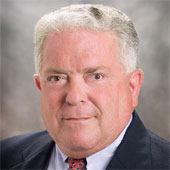Diplomacy in the Age of Terror (Part I)
Why are the means by which the United States has answered its terrorist foes demonstrably not working?
November 27, 2007
Al Qaeda’s leaders understand that this is a war of wits, not brawn. They will not be maneuvered onto a conventional battlefield. They are determined to select the ground on which they engage us.
They are fighting for the minds of the Muslim faithful, whose attraction to Western ideas they condemn and wish to suffocate in their reactionary vision. U.S. armed forces are without question the world’s most competent and lethal. No other military can defeat them. But they are not engaged in battle with another military.
Diplomacy and Terrorism
Diplomacy in the Age of Terror, I
Diplomacy in the Age of Terror, II
How to Restore U.S. Diplomacy
In these circumstances, our soldiers, sailors, airmen and marines are not the appropriate instruments of statecraft to lead our response to the mounting threat we face from Arab and other Muslim extremists.
Armed forces specialize in killing and capturing the enemy. But killing, incarcerating or otherwise humiliating Arabs and other Muslims who sympathize with Al Qaeda does not defeat the enemy. It aids him. Every instance of perceived injustice and humiliation creates a dozen new enemies, determined to kill Americans.
When he was asked in Australia a little while ago how we were doing in his administration’s so-called “global war on terrorism,” President Bush reportedly replied, with evident satisfaction, that “we are kicking ass.” But, cathartic as this may be, it is not a strategy.
In retrospect, Al Qaeda has played us Americans with the finesse of a matador exhausting a great bull. By invading Iraq, we transformed an intervention in Afghanistan most Muslims had supported into what looks to them like a wider war against Islam. We destroyed the Iraqi state and catalyzed anarchy, sectarian violence, terrorism and civil war in that country.
As a result, Al Qaeda has largely succeeded in its objective of estranging us from formerly friendly Arab states and their peoples. We have made it easy for violent Takfiri heretics, staunch Muslims who accuse others of apostasy and believe in the murder of non-Muslims, to claim that they are defending Islam and all its adherents against a global “crusade” spearheaded by American troops.
Their portrayal of their vicious attacks on American, Australian and European citizens as justified acts of reprisal against aggression has achieved a disturbing degree of resonance. In the broader realm of Islam, not just in the Arab world, rising percentages see such attacks on us Westerners as justified.
This greatly increases the risk of terrorist violence against any government or people that dares to be our partner. It makes attacks on Americans and our homeland a matter of certainty rather than speculation.
The purpose of terrorists is to spread fear for political effect. The cavemen in Waziristan have not had to work hard at fear-mongering. Our leaders have done it for them, putting in place the rudiments of a national-security-obsessed garrison state.
In the name of state security, it overrides more than two centuries of American devotion to the concept of a limited government of laws, not men. In our fear, we are also abandoning the openness that has been central to our economic, scientific and cultural success.
Increasingly, our borders are closed to both people and ideas. In the years of struggle between us, Al Qaeda has not been brought to question its core values or change them. Demonstrably, we have.
There is now a strong American preference for solving problems by militaristic, unilateralist and scofflaw behavior rather than diplomacy, cooperation with other nations or the promotion of legal norms. We condemn terrorism as criminal but reserve the right to respond to it with actions we ourselves previously considered criminal.
This has dismayed our allies and friends in the industrial democracies — and divided them from us, even as it has greatly reduced the numbers of those in the Muslim world and elsewhere who view us as worthy of emulation. We are increasingly isolated and friendless.
The restoration of faith in the United States and our commitment to international law and comity is among the most urgent tasks before us. As it is, when we are next struck (as we surely will be), we must be prepared for the likelihood that, this time, there will be more Schadenfreude overseas than solidarity with our distress.
The most urgent task of all before a successor administration, whatever its political complexion, will be to devise a coherent strategy to deal with the very real dangers posed by terrorists with global reach and their ideological base among the world’s Muslims.
The United States needs a strategy that integrates intelligence, diplomacy, economic measures and information policy with law enforcement and military power. We need a grand strategy that unites us with the enemies of our enemies and regains the collaboration and support of now alienated allies and friends. There is no such strategy at present. Without one, we cannot hope to prevail.
Editor’s Note: This is Part I of a three-part series extracted from a speech given by Ambassador Chas W. Freeman to the Pacific Council on International Policy in Los Angeles on October 4, 2007. The full text is available here. Continue to part II.
Read previous
Big Pharma’s Eastern Sunset
November 26, 2007
